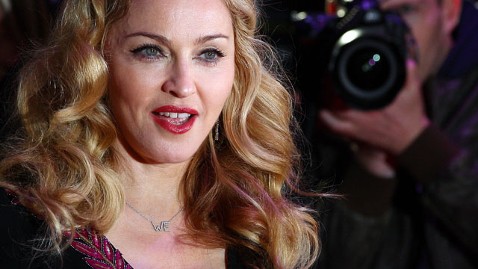Madonna May Be Charged Under St Petersburg Anti-Gay Law

Madonna to challenge St. Petersburg anti-gay law.
Pop singer Madonna has ignited controversy on both sides of a new anti-gay law in St Petersburg, Russia.
The Material Girl said in a Facebook posting this week that she plans to speak out against the law during an Aug. 9 concert in the city.
"I will come to St. Petersburg to speak up for the gay community, to support the gay community and to give strength and inspiration to anyone who is or feels oppressed," Madonna wrote on Wednesday.
"I don't run away from adversity. I will speak during my show about this ridiculous atrocity," she added.
The law, which took effect March 11, in part prohibits "the propaganda of homosexuality and pedophilia among minors."
Gay rights activists say it would criminalize even reading, writing or speaking about gay, lesbian, or transgender people. Violations can carry hefty fines, ranging from about $170 for individuals up to $16,700 or organizations and businesses.
The bill's author, city assemblyman Vitaly Milanov, says he wants Madonna charged under the new law if she speaks out against it during her concert. He said he was willing to attend the show "to control its moral content."
"I'm ready to personally suffer a couple of hours of her concert," he told the Russian Interfax news agency.
Madonna spoke out after an op-ed by Masha Gessen, a Moscow-based Russian-American journalist, was published in the New York Times on Monday calling on Madonna to cancel the show and urging tourists and businesses to boycott the city.
For some gay rights advocates her pledge to use the venue to denounce the new law was not enough.
A group of Russian gay rights advocates plans to picket the concert, saying Madonna is cashing in on their struggle and urging her to cancel the show.
"The law will stay in force, Madonna will leave and the Russian LGBT-community will be humiliated even more," Nikolai Aleksev, the head of the LGBT advocacy group Gay Russia, wrote on his blog.
Other Russian gay rights groups disagreed with that tactic and welcomed the attention the superstar had given to their cause.
"We consider that Madonna's visit and her address to millions of her Russian fans with words in support of freedom of expression for everyone will bring more good than a boycott would," said Igor Kochetkov, chairman of the Russian LGBT Network.
Homosexuality was banned in the Soviet Union and was only decriminalized in 1993, though it was still declared a mental disorder until 1999. It remains highly taboo in Russia. Laws similar to the St Petersburg legislation are now being considered in other regions and the speaker of the Russian Parliament, the Duma, has promised to weigh endorsing it at a national level.